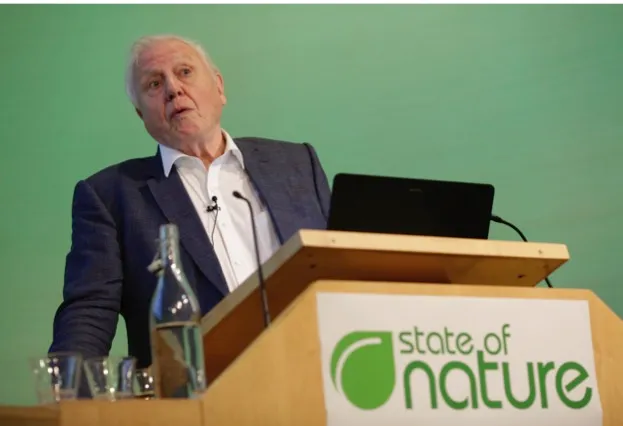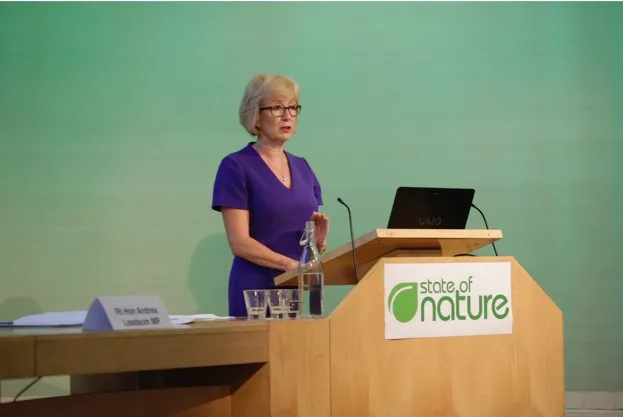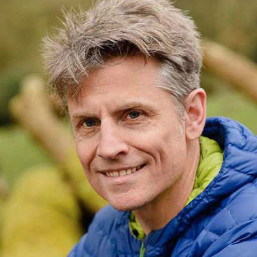Naturalist and TV presenter Iolo Williams – best known for his regular appearances on Springwatch and other programmes about British wildlife – launched a coruscating attack on the Government at the launch of the State of Nature 2016 report.
During a panel discussion following speeches by both Sir David Attenborough and environment secretary Andrea Leadsom, Williams said the current Conservative administration was the worst he had ever seen from a wildlife perspective.
“I am 54 and this is the worst government I have ever seen from the point of view of nature conservation,” he said. “Andrea Leadsom said they are going to be the greenest government ever, but that’s certainly not what they are now.”
Williams also attacked Leadsom for previously raising doubts about the science of climate change and joked that he has advocated introducing wolves into the UK in the past, with “the Houses of Parliament being the best place to start”.
“I have had 50 years of being let down by politicians,” he said.
Referring to the report itself – which describes the UK as one of the most “nature-depleted” countries in the world – Williams said wildlife groups needed to change the way they work.
“The Government needs a five-million-plus membership kick up the backside because it has let us down on some very important issues,” he concluded. “This report does not translate into more salmon swimming up our rivers, more hay meadows or more skylarks.”

Speaking earlier, Sir David Attenborough said Brexit gave the British Government an opportunity to rethink the way we protect the natural world.
“Arrangements on the Common Agricultural Policy (CAP), fisheries and many other things will be affected, and they will have to be rethought whether we like it or not,” he said.
Andrea Leadsom told the packed conference hall at the Royal Society in Central London that the latest report showed the need for action was more urgent than ever, highlighting as it does the decline of pollinating insects and other invertebrates.
“I am encouraged by some signs that historic rates of decline are slowing, with some species even making some pretty remarkable recoveries,” she added.

“The report highlights some recent collaborations to restore grassland and woodland and create more wetland, leading to the recovery of species such as the lesser horseshoe bat.”
One of the key pieces of evidence to emerge from State of Nature 2016 is that the intensification of agriculture has been the main cause of wildlife declines since 1970.
According to one of the scientists that worked on the report, a third of all declines can be attributed to the way farming has changed in the past four decades or so.
But farmers rejected much of the evidence contained in the report, saying that agriculture has not intensified since the early 1990s. “In terms of inputs, numbers of livestock and area of crops grown, it’s the reverse,” said vice president Guy Smith.
“Other causes [of declines] such as urbanisation, climate change or increasing predator pressure need greater attention,” he added.
7 stats from State of Nature 2016
- The UK has an estimated 70,200 species, but we only have good data on the abundance and occupancy trends for 6.4% (about 4,500) of these.
- Of 4,000 UK species assessed, 56% declined between 1970 and 2013, with 40% undergoing strong or moderate declines, 31% little change either way and 29% strong or moderate increases.
- An assessment of 1,309 plant species showed they had declined by an average of 11% since 1970.
- For all terrestrial vertebrates – mammals, birds, reptiles and amphibians – assessed, 53% have increased and 47% have declined since 1970.
- For all invertebrates, 59% have declined, while 41% have increased in the same period.
- Nature reserves and legally protected sites cover about 12% of the area of the UK – the global target is for every country to protect at least 17% of its land area.
- Public spending on biodiversity fell (as a proportion of Gross Domestic Product or GDP) by 32% between 2008 and 2015.
Main image: Iolo Williams: "This is the worst government from the point of view of nature conservation." © RSPB
